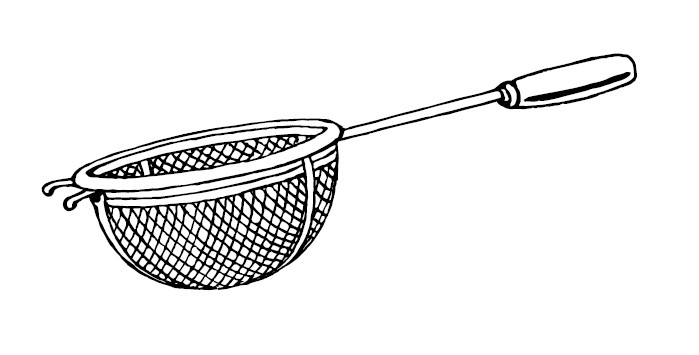The Dubner Maggid
A good sermon can have a profound influence on a person's life. I've read many sermons ascribed to Rabbi Jacob Kranz (1740-1804), the Dubner Maggid. I don't know if they changed my life, but I've never forgotten them. And I'm not alone in my admiration for him - he was the most famous and best-loved preacher in Jewish history. I especially remember the illustrative parables he told to drive home a point. He was once asked how he always seemed to have the perfect parable at hand. To which he replied with a parable:
There once was a champion archer, renowned throughout the land. One day, on a walk through the countryside, he saw a barn with many circles drawn on it. In the exact center of each was an arrow. This is an archer even greater than I, he thought to himself; I must meet him. He knocked on the farmhouse door and a twelve-year-old boy answered. "Is your father home?" he asked. "No, he's working in the field." "I understand. I wanted to ask him about his great skill with the bow and arrow." "But I shot those arrows," the lad answered. "Show me," said the archer in disbelief. The boy took his bow and arrow, shot an arrow at the barn and then, around it, drew a circle. "In the same way," said the Maggid, "when I preach I know exactly what point I want to make, and around it I construct my story."
The Dubner Maggid was not only a gifted speaker: he was also a great scholar. As the town of Dubno's official teacher and preacher, he served many constituencies. One such constituency were the advanced scholars of the town's yeshiva who asked him to teach them the Book of Proverbs, but in a straightforward manner, without the stories and illustrative tales he used when preaching to the simple people. The Maggid replied with the following parable:
A wealthy merchant married off his daughter to a Torah scholar. The merchant promised that he would support his new son-in-law in his studies for a certain period of time. When that time ended, the father-in-law told his son-in-law that it was now time for him to support himself. "Go to the fair in the next town," he told him, "and buy merchandise. Make sure that what you buy has no holes in it as you will not be able to resell imperfect goods." It so happened that the young man's mother-in-law also asked him to buy her some household items at the fair, especially a sieve and a strainer (in another version of this story, sewing needles). When the son-in-law returned, the father-in-law was very pleased. The fur and the cloth that he bought were in perfect condition, without any holes. But where were the sieve and the strainer? To which the son-in-law replied that, try as he might, he was unable to find any without holes. "Foolish young man," called out the father-in-law. "Sieves and strainers must have holes in them. The holes are what constitute their utility. Without them they are useless." In the same way, explained the Maggid, if he were to teach the scholars the Book of Proverbs without illustrative stories, he would be doing them a great disservice. For proverbs need stories to illuminate them and bring out their full meaning.
It is hard to imagine a more unlikely friendship than that of the Gaon of Vilna (Rabbi Eliyahu Kremer, 1720-1797) and the Dubner Maggid. But historical accounts confirm it. They were so different temperamentally. It is said of the Gaon, who immersed himself in study both day and night, that the most difficult of the six hundred and thirteen commandments for him to keep was, "You shall rejoice in your festival" (Deuteronomy 16:14). Lightheartedness, frivolity, expressing joy did not come easily to him. The Maggid, on the other hand, was a man of the people, warm and gregarious.
There is a famous story that one year, on Rosh Hashanah, the Gaon, whose custom it was to blow the shofar for those assembled in his house of study, was unable to do so. Try as he might, not a single note emerged from his shofar. The honor was then given to an ordinary Jew who blew the shofar faultlessly. Despondent, and fearing that it was some moral imperfection in himself, he turned to the Maggid, who comforted him with the following parable:
An emperor possessed an unusually precious diamond which he wanted to cut. The realm's finest jewelers demurred from taking on the task. Aware of the great value of the diamond, they feared that their hands might shake when cutting it, thus creating an imperfection in the diamond. Not so the simple jeweller to whom the emperor was forced to finally turn. Swiftly and faultlessly, he cut the diamond to the great satisfaction of its owner. "It is the same with you, Rabbi Eliyahu," the Maggid explained. "You know the deep meaning of each sound of the shofar, and you are aware of the great responsibility you bear for all Israel when blowing it. It is for this reason that you encountered your difficulty. The ordinary Jew who blew the shofar in your place had no such deep understanding and felt no such great responsibility. For this reason, he was able to blow the shofar in the faultless way he did."
My favorite of all the Maggid's parables is that of the borrower who returns two of every item to the lender. This is not an original parable of the Maggid - it was known in many cultures in his day. But the Maggid's application of it was uniquely Jewish. In short, a man borrows a wine goblet, and then a sugar bowl, and then a large plate, always returning two of the same a few days later. When the lender asks him why he is returning two of each item, the borrower explains that the item, while in his possession, gave birth to a second one. It seemed only right that both belonged to the original owner. Soon thereafter, the borrower asked to borrow an expensive silver tray. The lender was more than pleased to comply. He could already imagine receiving two in a few days. But many days passed, and the borrower had still not returned the tray. The concerned lender asked what happened. "I'm sorry," the borrower said, "but while in my possession, your tray died." I have told this story many times and applied it to many different situations. This is the Maggid's application:
There is a verse in the Torah: You shall not add unto the word which I command you; neither shall you diminish from it, that you may keep the commandments of the Lord your God. (Deuteronomy 4:2). We can easily understand why we should not diminish from God's commandments, but why shouldn't we add to them? The Maggid explains that he who believes that the commandments can "give birth" to new commandments will ultimately come to the conclusion that he can also annul others. It was the Maggid's message in his preaching that the Torah which God gave the Jewish people is perfect and complete. It is our mission to observe it as it was given to us.
Resource: He Spoke in Parables: The Life and Works of the Dubno Maggid by Rabbi Herman Glatt, New York, A Jay Bithmar Publication, 1957.









Comments